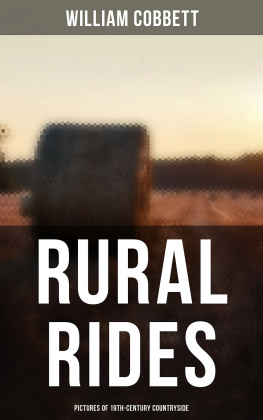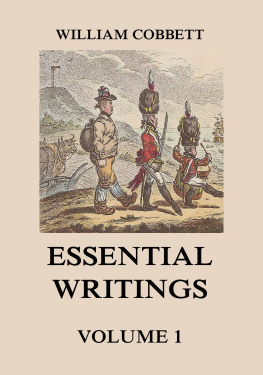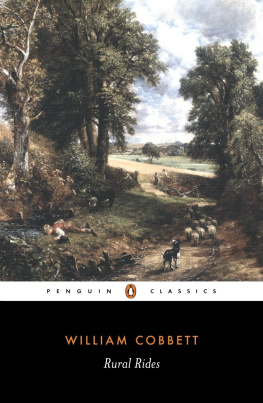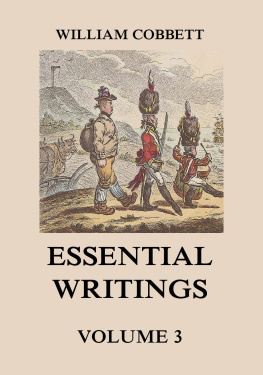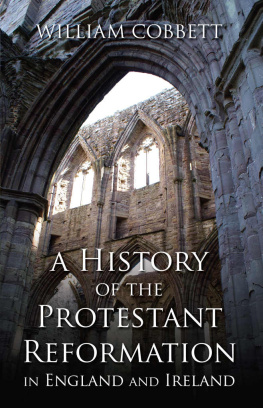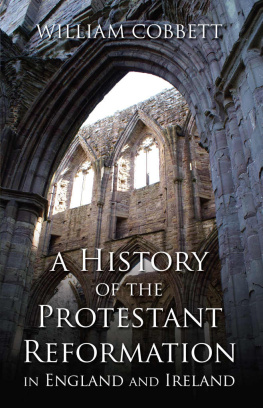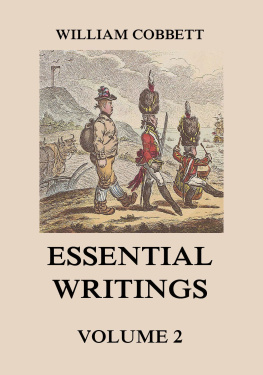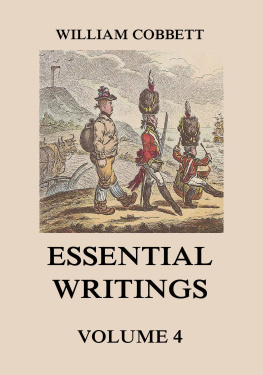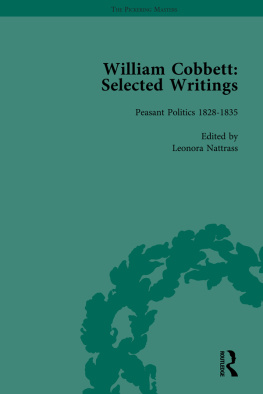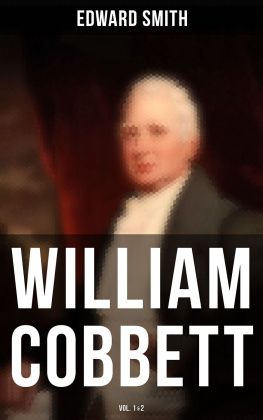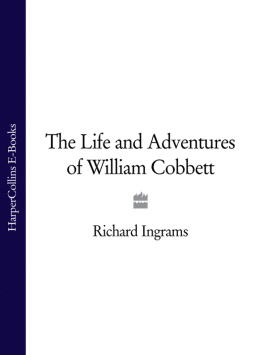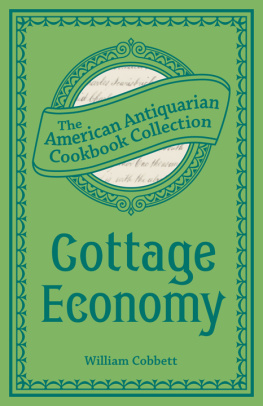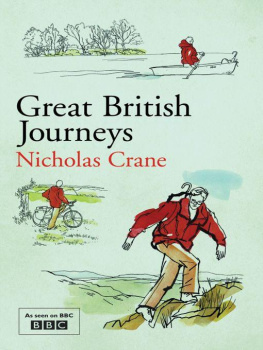RURAL RIDES, ETC.
JOURNAL: FROM LONDON, THROUGH NEWBURY, TO BERGHCLERE, HURSTBOURN TARRANT, MARLBOROUGH, AND CIRENCESTER, TO GLOUCESTER.
Berghclere, near Newbury, Hants,
October 30, 1821, Tuesday (Evening).
Fog that you might cut with a knife all the way from London to Newbury. This fog does not wet things. It is rather a smoke than a fog. There are no two things in this world; and, were it not for fear of Six-Acts (the wholesome restraint of which I continually feel) I might be tempted to carry my comparison further; but, certainly, there are no two things in this world so dissimilar as an English and a Long Island autumn.These fogs are certainly the white clouds that we sometimes see aloft. I was once upon the Hampshire Hills, going from Soberton Down to Petersfield, where the hills are high and steep, not very wide at their base, very irregular in their form and direction, and have, of course, deep and narrow valleys winding about between them. In one place that I had to pass, two of these valleys were cut asunder by a piece of hill that went across them and formed a sort of bridge from one long hill to another. A little before I came to this sort of bridge I saw a smoke flying across it; and, not knowing the way by experience, I said to the person who was with me, there is the turnpike road (which we were expecting to come to); for, dont you see the dust? The day was very fine, the sun clear, and the weather dry. When we came to the pass, however, we found ourselves, not in dust, but in a fog. After getting over the pass, we looked down into the valleys, and there we saw the fog going along the valleys to the North, in detached parcels, that is to say, in clouds, and, as they came to the pass, they rose, went over it, then descended again, keeping constantly along just above the ground. And, to-day, the fog came by spells. It was sometimes thinner than at other times; and these changes were very sudden too. So that I am convinced that these fogs are dry clouds, such as those that I saw on the Hampshire Downs. Those did not wet me at all; nor do these fogs wet any thing; and I do not think that they are by any means injurious to health.It is the fogs that rise out of swamps, and other places, full of putrid vegetable matter, that kill people. These are the fogs that sweep off the new settlers in the American Woods. I remember a valley in Pennsylvania, in a part called Wysihicken. In looking from a hill, over this valley, early in the morning, in November, it presented one of the most beautiful sights that my eyes ever beheld. It was a sea bordered with beautifully formed trees of endless variety of colours. As the hills formed the outsides of the sea, some of the trees showed only their tops; and, every now-and-then, a lofty tree growing in the sea itself raised its head above the apparent waters. Except the setting-sun sending his horizontal beams through all the variety of reds and yellows of the branches of the trees in Long Island, and giving, at the same time, a sort of silver cast to the verdure beneath them, I have never seen anything so beautiful as the foggy valley of the Wysihicken. But I was told that it was very fatal to the people; and that whole families were frequently swept off by the fall-fever.Thus the smell has a great deal to do with health. There can be no doubt that Butchers and their wives fatten upon the smell of meat. And this accounts for the precept of my grandmother, who used to tell me to bite my bread and smell to my cheese; talk, much more wise than that of certain old grannies, who go about England crying up the blessings of paper-money, taxes, and national debts.
The fog prevented me from seeing much of the fields as I came along yesterday; but the fields of Swedish Turnips that I did see were good; pretty good; though not clean and neat like those in Norfolk. The farmers here, as every where else, complain most bitterly; but they hang on, like sailors to the masts or hull of a wreck. They read, you will observe, nothing but the country newspapers; they, of course, know nothing of the cause of their bad times. They hope the times will mend. If they quit business, they must sell their stock; and, having thought this worth so much money, they cannot endure the thought of selling for a third of the sum. Thus they hang on; thus the landlords will first turn the farmers pockets inside out; and then their turn comes. To finish the present farmers will not take long. There has been stout fight going on all this morning (it is now 9 oclock) between the sun and the fog. I have backed the former, and he appears to have gained the day; for he is now shining most delightfully.
Came through a place called a park belonging to a Mr. Montague , who is now abroad; for the purpose, I suppose, of generously assisting to compensate the French people for what they lost by the entrance of the Holy Alliance Armies into their country. Of all the ridiculous things I ever saw in my life this place is the most ridiculous. The house looks like a sort of church, in somewhat of a gothic style of building, with crosses on the tops of different parts of the pile. There is a sort of swamp, at the foot of a wood, at no great distance from the front of the house. This swamp has been dug out in the middle to show the water to the eye; so that there is a sort of river, or chain of diminutive lakes, going down a little valley, about 500 yards long, the water proceeding from the soak of the higher ground on both sides. By the sides of these lakes there are little flower gardens, laid out in the Dutch manner; that is to say, cut out into all manner of superficial geometrical figures. Here is the grand en petit, or mock magnificence, more complete than I ever beheld it before. Here is a fountain, the basin of which is not four feet over, and the water spout not exceeding the pour from a tea-pot. Here is a bridge over a river of which a child four years old would clear the banks at a jump. I could not have trusted myself on the bridge for fear of the consequences to Mr. Montague ; but I very conveniently stepped over the river, in imitation of the Colossus. In another part there was a lions mouth spouting out water into the lake, which was so much like the vomiting of a dog, that I could almost have pitied the poor Lion. In short, such fooleries I never before beheld; but what I disliked most was the apparent impiety of a part of these works of refined taste. I did not like the crosses on the dwelling house; but, in one of the gravel walks, we had to pass under a gothic arch, with a cross on the top of it, and in the point of the arch a niche for a saint or a virgin, the figure being gone through the lapse of centuries, and the pedestal only remaining as we so frequently see on the outsides of Cathedrals and of old Churches and Chapels. But, the good of it was, this gothic arch, disfigured by the hand of old Father Time, was composed of Scotch fir wood, as rotten as a pear; nailed together in such a way as to make the thing appear, from a distance, like the remnant of a ruin! I wonder how long this sickly, this childish, taste is to remain. I do not know who this gentleman is. I suppose he is some honest person from the Change or its neighbourhood; and that these gothic arches are to denote the antiquity of his origin

